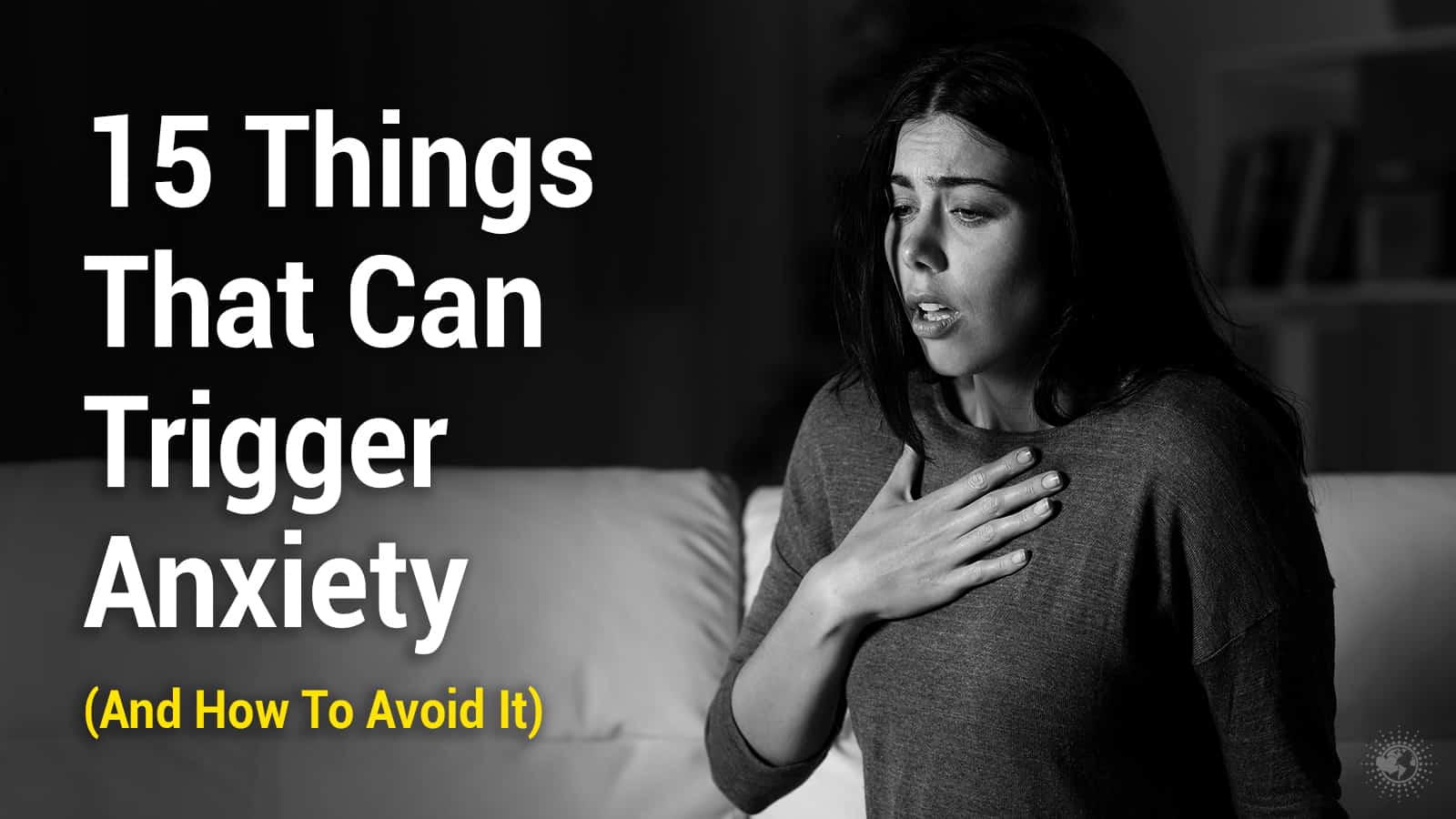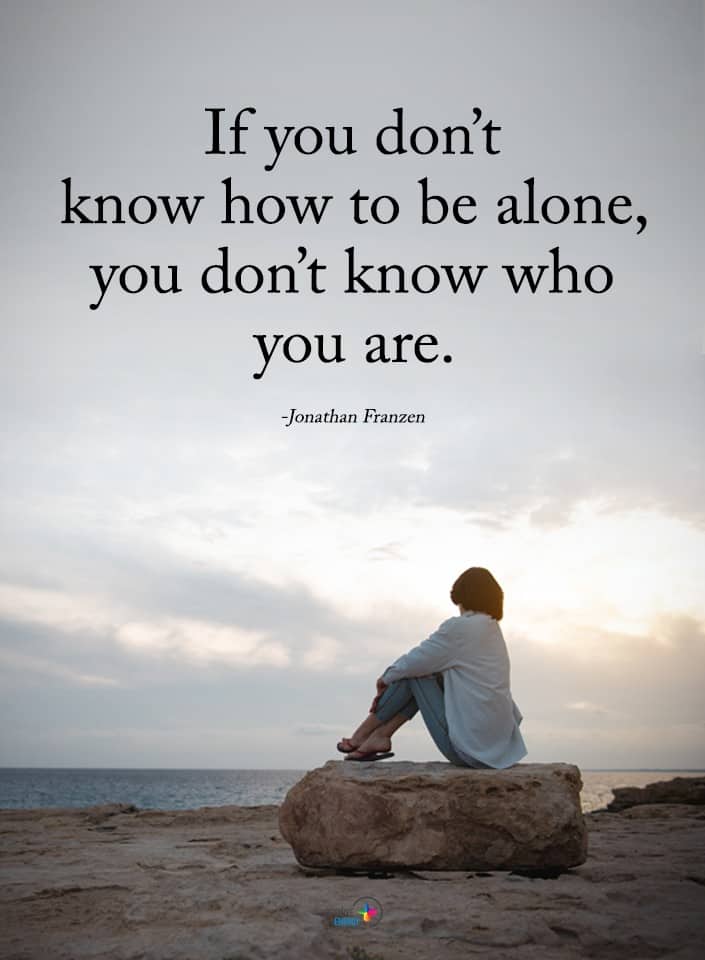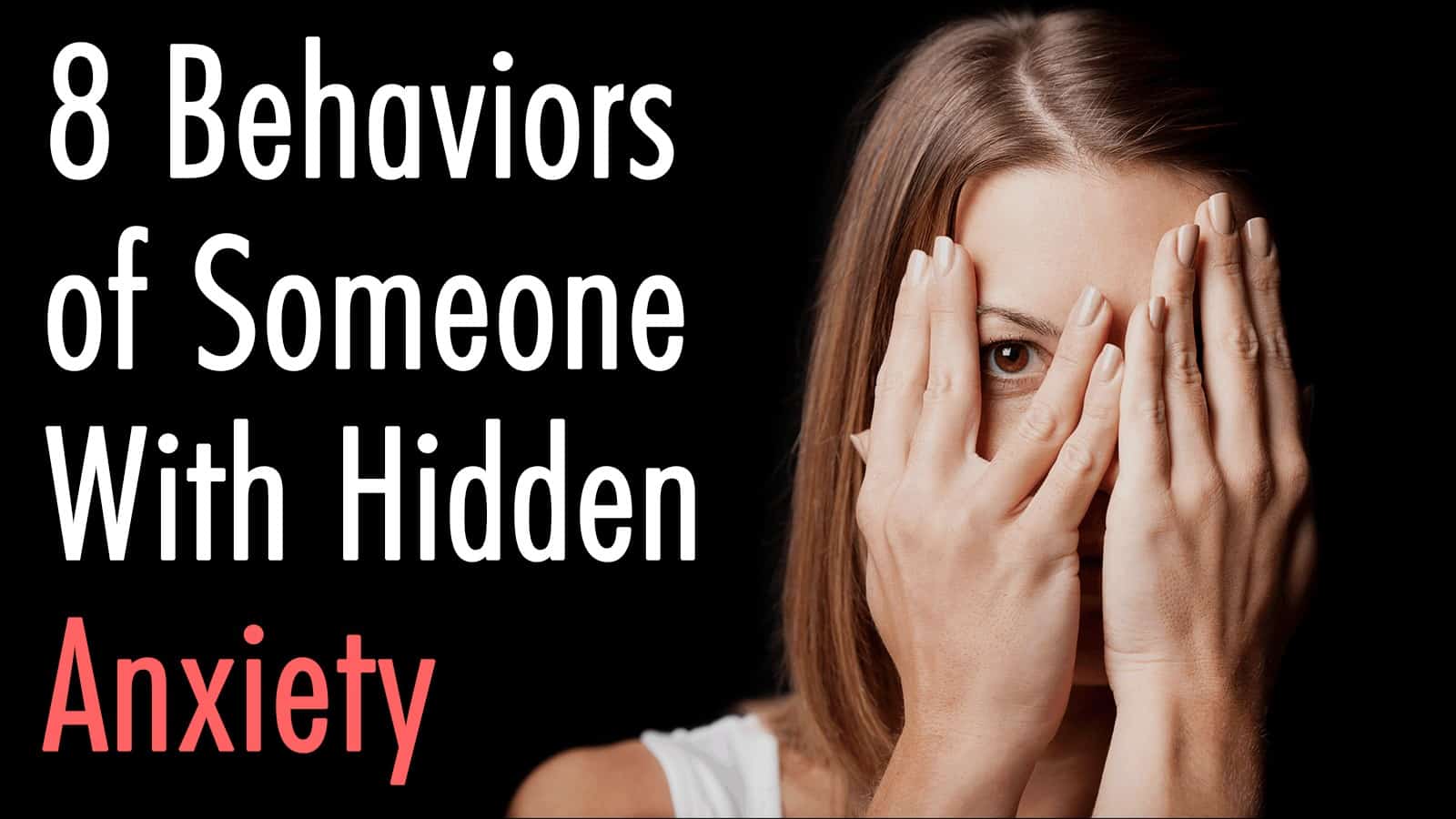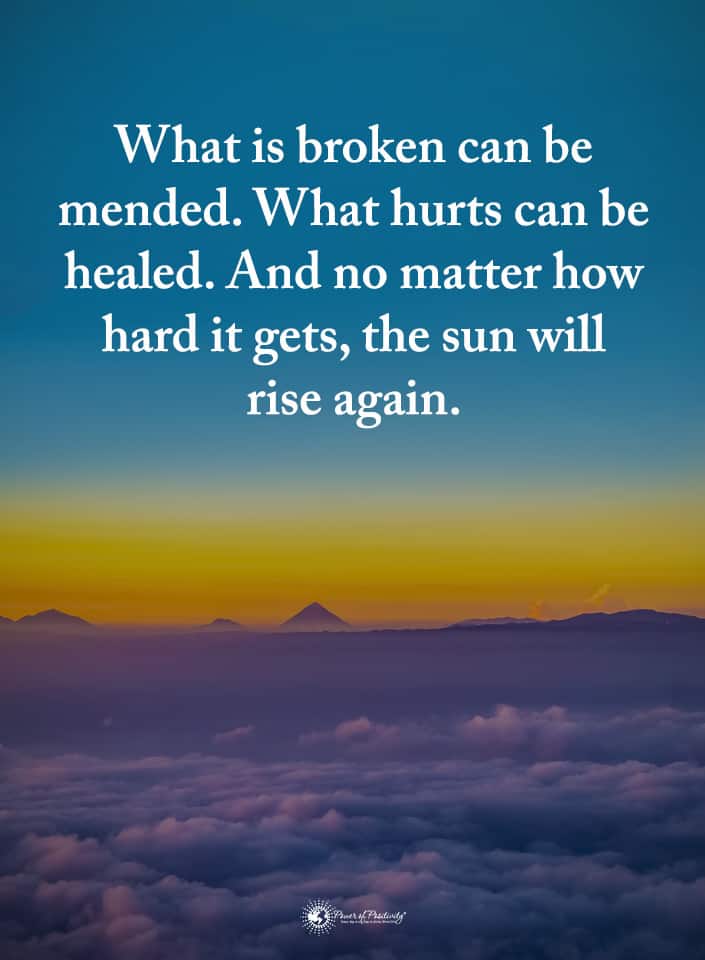Anxiety exists along a spectrum. From pure nervousness to panic attacks and from stage fright to anxiety disorders, everyone experiences anxiety to a certain degree.
There’s no denying, though, that anxiety can be frightening and challenging to get through. To better understand how to fight anxiety, you’ll need to know what causes it.
Fifteen Triggers of Anxiety
Here are fifteen things that can trigger anxiety, and how to avoid it.
1. Environmental Issues
The world around you can play a significant role in your thoughts, emotions, and experiences. That’s why you need to pay attention to environmental concerns that can trigger anxiety. Here are some examples:
· It’s Too Hot
If the environment you’re staying in feels too hot, you’ll find yourself drained of energy, feeling dehydrated, unable to focus, and feeling unusually short of temper. Heat can also cause an increased respiratory rate. All of these factors combined can lead to feelings of stress and anxiety, sometimes escalating to a full-blown panic attack. Try to dress for your environment and weather, and use fans or air conditioning when it is possible.
· Being Surrounded By Clutter
You don’t necessarily have to be a neat freak, but if your home or even work environment is very messy or cluttered, it can result in some degree of anxiety. Even those who think they like a little clutter have limits to what their minds can tolerate. Multiple studies have found that the environment around you can affect your positive thinking and even your behaviors.
If the area around you is clutter-free, you’ll be more productive and much less prone to frustration and stress, so take a little time to clean up your general work or living space. If you struggle to find things you’re looking for, it’s time to clean!
· Staying Inside All The Time
Staying cooped up indoors all the time can be detrimental to your mental health. Even if you’re not particularly fond of the great outdoors, spending time in nature can noticeably reduce symptoms of stress, anxiety, and depression.
Research indicates that spending some time in life can help you regenerate mental and physical energy by an impressive 40%. To avoid staying inside too much, try going for a walk outside or even just standing on a balcony or porch for half an hour every day.
· Living In A City
Cities are full of the hustle and bustle of life, with loud noises, blurred lights, tight crowds, and pollution abound. All the chaos can feel beautiful or even useful to city slickers at heart, but that doesn’t mean certain aspects of city life won’t eat away at you and cause anxiety.
Air pollution, especially, is prone to causing anxiety symptoms, according to studies. While you likely can’t altogether avoid the pollution in a city, you can take some steps to reduce it. Use air purifiers, keep your windows closed, and be mindful of air quality before leaving your home.
2. Being Too Connected
Connection is a good thing in moderation. But, as with all things in excess, too much of a positive thing can turn against you. While this connection can bring you closer to others, it can also make you open to anxiety triggers. Here are some examples:
· You’re Always Available
Even after you come home from work, you check your emails, reply to coworkers, and chat with friends late into the night. It sounds like the perfect use of technology, but one of the modern world’s downsides is that it has made us forget that we shouldn’t feel obligated to be on edge for messages and calls continually. Doing so can make us stressed and anxious, as we never get a break. At a specific time every night after you’re done with work, stop letting yourself be available. You can text back certain close friends if you want to, but leave thoughts of more work, responsibilities, and similar factors for the next day.
· You’re Always On Social Media
Social media has several upsides as well as many downsides. Sadly, those downsides can be pretty detrimental to mental health. Numerous studies have found that always looking at social media can lead to decreased positive thinking, lowered self-esteem, and higher symptoms of depression and anxiety. It’s important to remember that what you see on social media is carefully created and edited to showcase only each person’s best side. Don’t compare yourself to them, and don’t obsess over social media. Know when to cut yourself off from scrolling through your feed!
· You Constantly See News Updates
With news applications on every smartphone, it can be difficult not to be aware of all current events, 24/7. Unfortunately, that kind of thing can be very taxing on mental health. With so much bad news out there continually streaming in, your stress and anxiety levels rise and rise. It’s only marginally each time, but all those small things eventually add up.
Try to dedicate specific times, preferably around mid-day, to settle down and read the news from the last 24 hours instead of allowing yourself to receive news non-stop. That way, you confine that anxiety to a single time and can move on afterward.
3. Something You Drank
Whatever you put into your body impacts how it functions. Usually, people pay more attention to the food they consume, not to their drinks – but drinks can be quite sneaky in the way they affect you! Here are some issues with beverages that could be triggering your anxiety:
· Too Much Coffee
Your first dose of caffeine can be great for alertness, productivity, and positive effects on stress. But drinking more than one cup can be pretty bad for you, especially if you have a sensitivity to caffeine. It results in jittery behavior, usually stemming from a fight vs. flight response. In fact, according to studies, consuming too much caffeine can lead to effects that are virtually indistinguishable from an anxiety disorder, albeit only in the short term! As such, make sure you don’t overdo your coffee consumption.
· Too Little Water
Water powers every single function in the body. If you don’t drink enough of it, you don’t just become thirsty. You also experience changes to many of your body’s processes, and you also develop problems with your mental health and positive thinking.
Dehydration can lead to mood disruption, higher stress levels, and a reduction of concentration. As such, make sure to keep yourself hydrated. Drink a glass of water at each meal and make sure you get a minimum of 8 glasses of water in your diet per day.
· Consuming Alcohol
If you’ve consumed enough alcohol to wake up with a hangover the next day, then nausea and headaches aren’t all you will have to contend with. Excess alcohol consumption can cause the brain to become rewired, leading to an increased risk of developing symptoms of anxiety that can lead to an anxiety disorder, according to studies.
Worse still, alcohol consumption, while it helps you fall asleep faster, shortens your deep sleep phases, meaning you get less restorative sleep, which causes even more anxiety. Be sure to drink only in moderation, and save getting very drunk for very rare occasions.
4. Everyday Concerns
Life is full of stressful and unwanted events that can trigger anxiety. Missing your bus, being late to a meeting, losing an item, or forgetting a report due are all everyday sources of stress. They can seem mundane, but they can build up over time.
On top of that, stressors don’t have to be severe to trigger anxiety. Even something small can tip you over the edge. Try to identify these triggers and learn to prepare for them. Here are some smart tips you should keep in mind:
· Financial Issues
It’s no secret that money rules the world we live in – and that’s enough to make a lot of people anxious. If you’ve been dealing with financial issues, it makes sense that they could trigger your anxiety. It’s difficult to avoid financial problems, but if you can, seek professional help to manage your accounts, ask for help from trusted friends or family, or even draft up a spreadsheet or use a journal to track your earnings and expenses.
· Conflict
Life and social interactions involve conflict sometimes. Disagreements, arguments, and other issues between you and those around you can lead to stress that triggers anxiety. This is especially true if those conflicts pose a risk on essential aspects of your life, such as a disagreement with a coworker that could have you reported.
It is also very accurate if these relationships are deeply personal and mean a lot to you. You could deal with anxiety because you fear losing the people in your life or the things that you have. Whatever the case, you can learn conflict resolution strategies to manage these problems better.
· Social Events
If you’re more of an introvert or already feel awkward in social environments, needing to spend time around others, especially those you don’t know, can be a massive trigger for anxiety. If the symptoms are severe enough, you might even have a social anxiety disorder. Try bringing a friend along with you to social events, or learn essential small talk topics of conversation.
You should also not overstuff your social calendar; make sure that you have enough time to spend by yourself to recharge, too! If you think you have a social anxiety disorder, you should also speak to a mental health specialist as soon as possible.
· Sunday Nights
Believe it or not, Sunday blues are a real thing. The stress of knowing you have to go back to work the next day can be especially taxing for those who are already dealing with some degree of burnout. Upcoming deadlines, the burden of responsibilities, and even just the monotony of everyday work can start to catch up to you.
Try to take each day a single step at a time instead of focusing on those tomorrows. It can be helpful to draft your to-do list on the mornings of the days they’re for, instead of days before.
· Personal Triggers
If you already have anxiety disorder or a trauma disorder, then there may be certain circumstances, items, or memories that result in an anxiety trigger. These triggers will remind you of something negative that happened in your life. This is common for those with post-traumatic stress disorder, for example. If you think this is what you’re dealing with, speak to a mental health professional quickly.
Final Thoughts On Some Things That Can Trigger Anxiety, And How To Avoid Them
Though stressors that can trigger anxiety are everywhere, you can learn to avoid, prevent, or work through those concerns to the best of your ability. However, do note that if you believe you have an anxiety disorder and have not been diagnosed with one, you should speak to a medical professional who can help you.



















